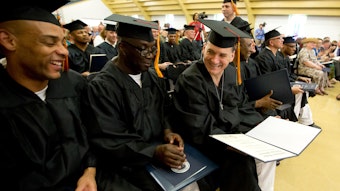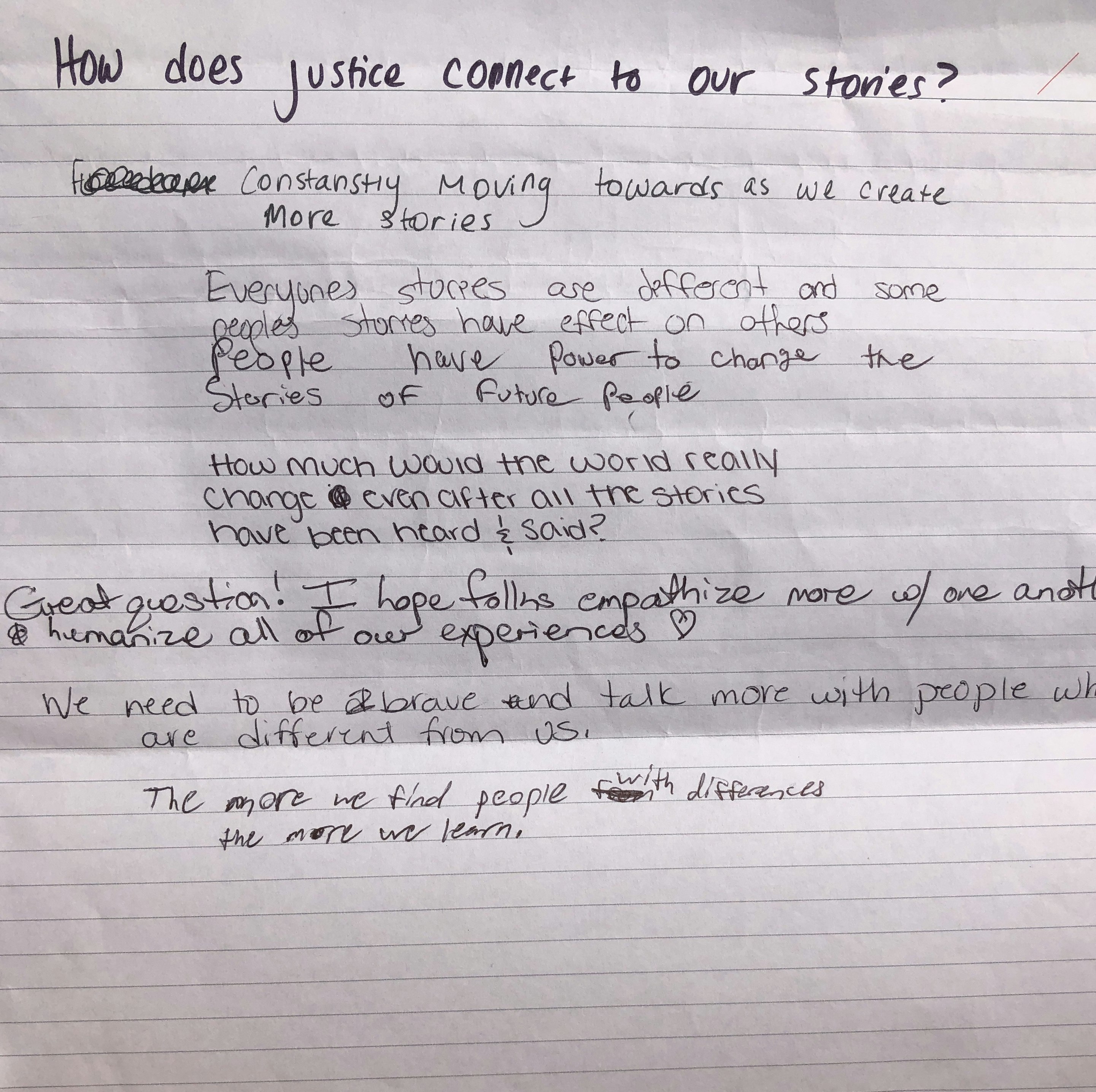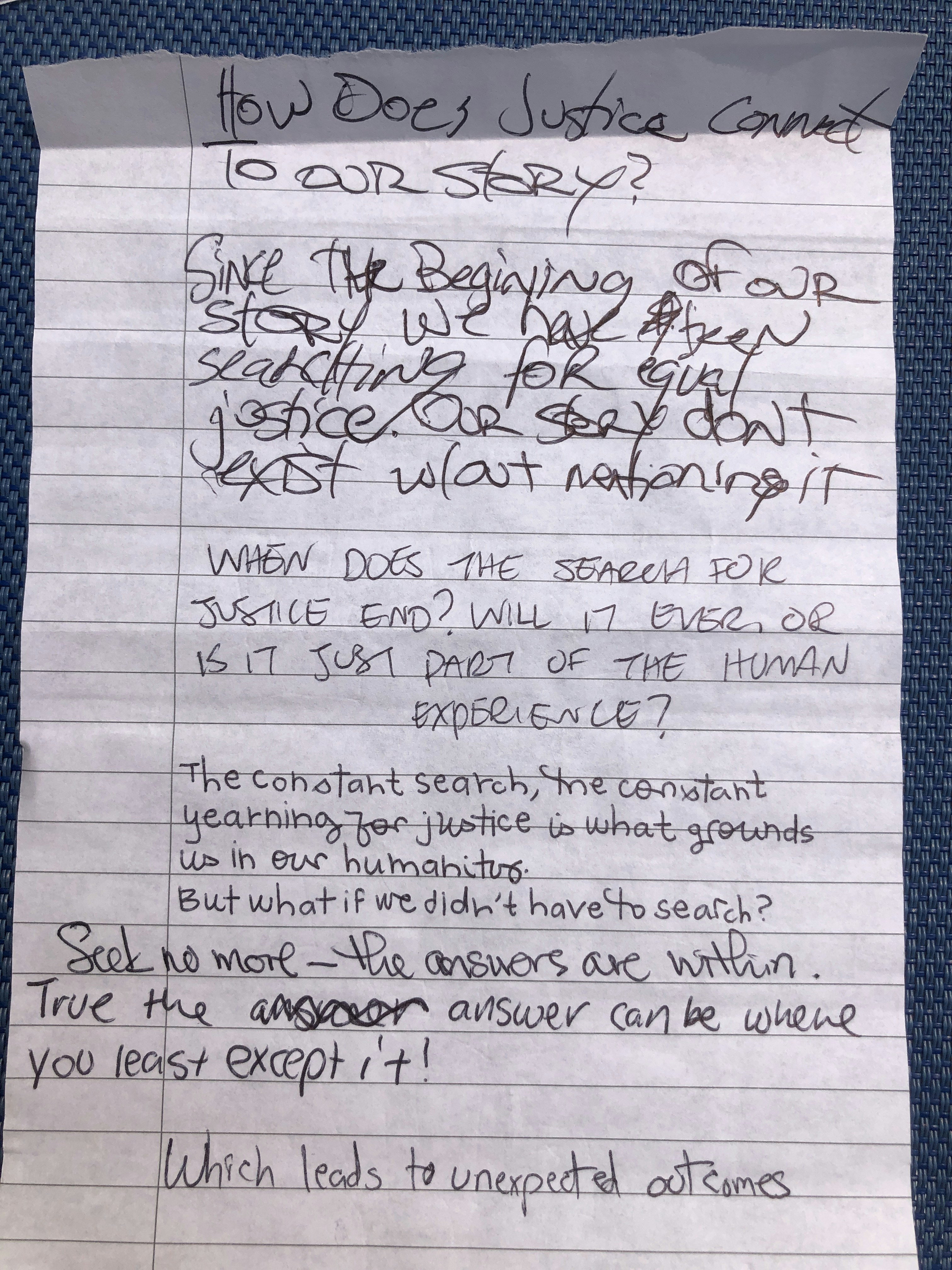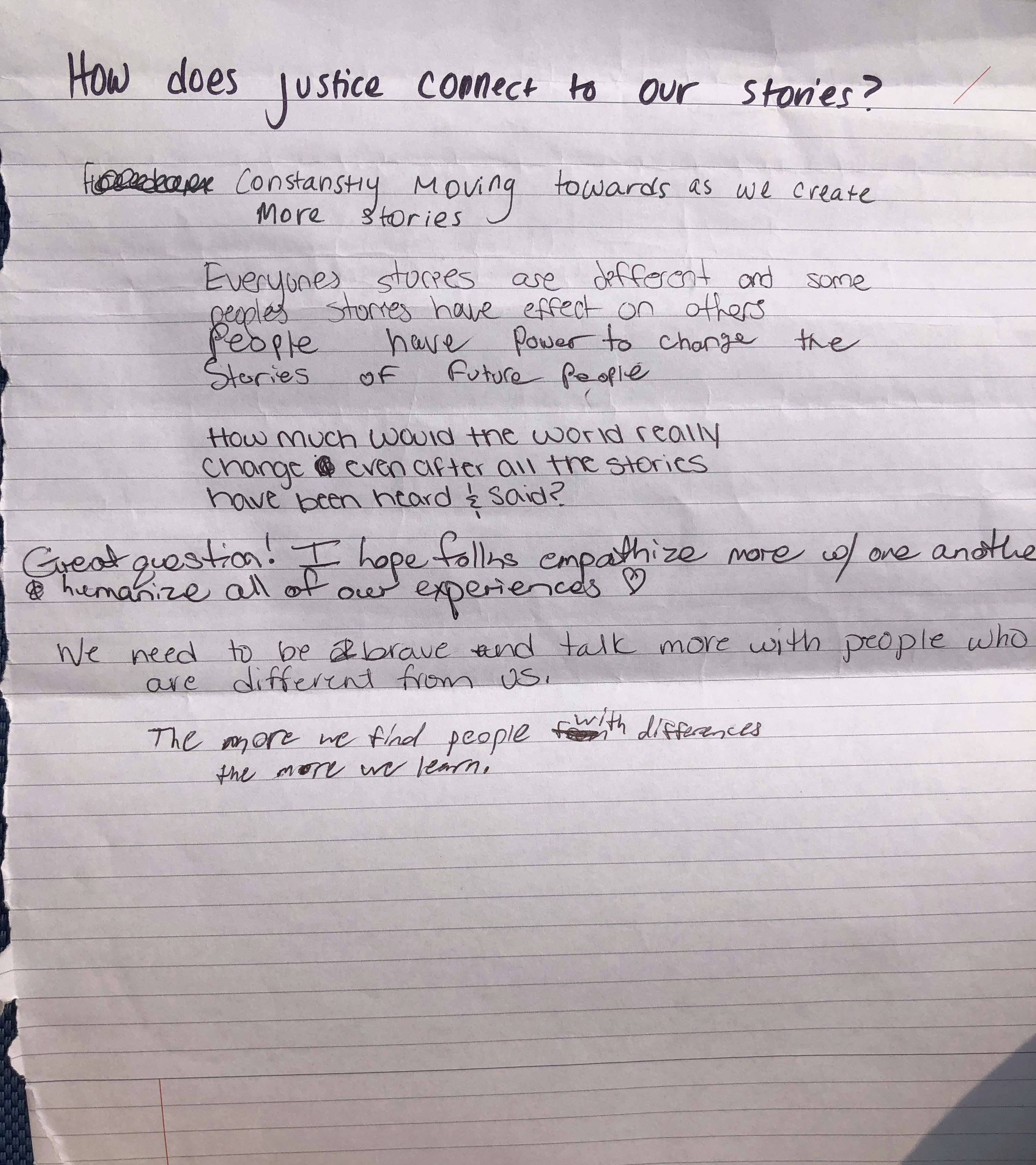Summer of HOPE Returns to Radcliffe Yard
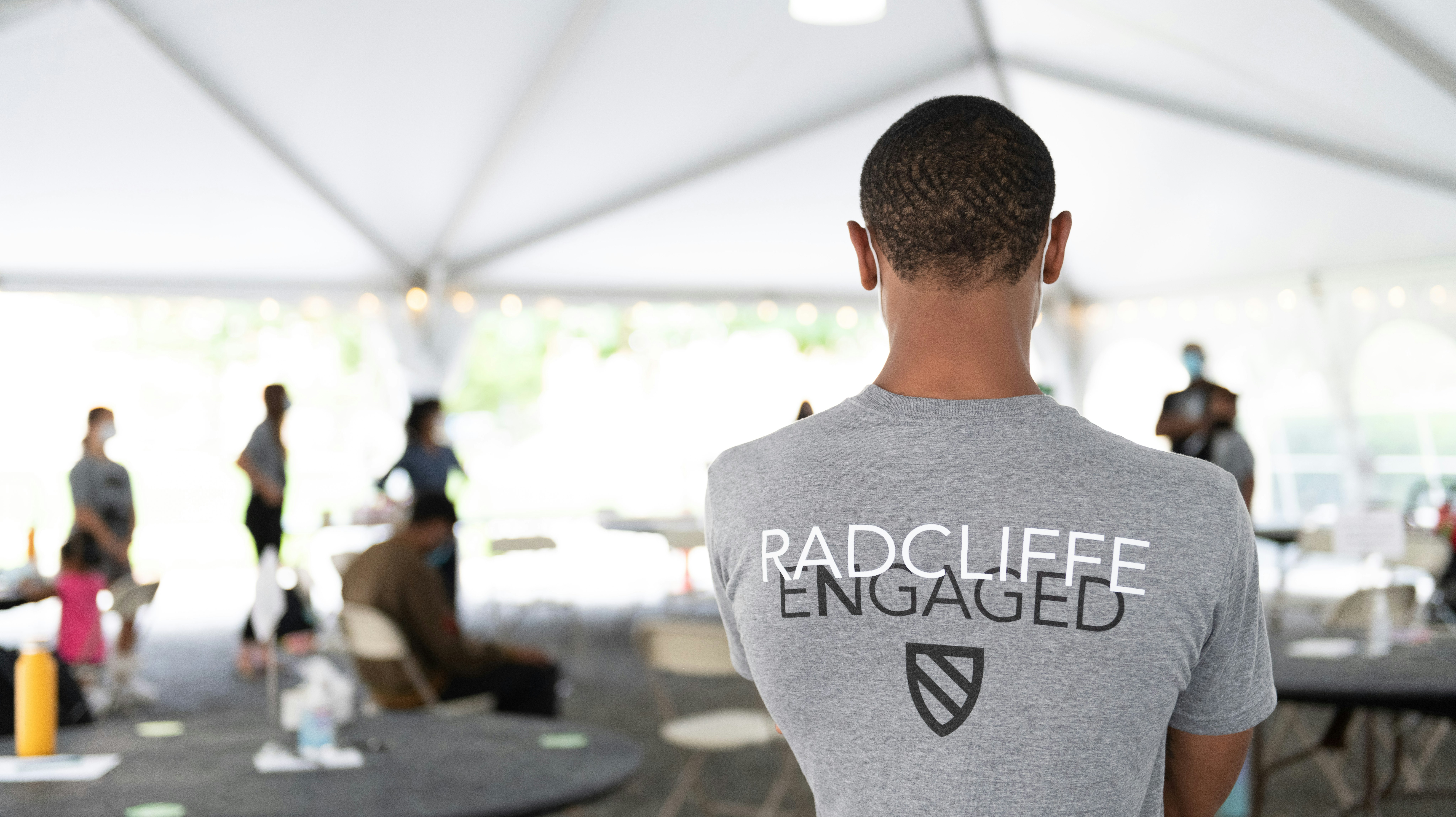
High-school students from the Greater Boston area explore how justice connects to their personal stories
For the third consecutive summer, Harvard Radcliffe Institute hosted high schoolers from Boston and surrounding cities for the Summer of HOPE program. After holding the program virtually in the summer of 2020, Radcliffe once again resumed its work in law, education, and justice in person, welcoming eight students—a number of whom have been impacted by mass incarceration in the United States—to a tent in Radcliffe Yard in July. There, they took part in an original workshop, “Our Stories & Justice,” designed to conceptualize just how justice and injustice are intimately connected to personal experiences and narratives.
The program was a collaboration between the Institute and its community partners: Transition HOPE, led by Janelle Ridley; BMA Tenpoint; and the City of Boston mayor’s office. Divya Chandramouli, a PhD candidate at the Graduate School of Arts and Sciences; Nina Elkadi ’23, a history and literature concentrator; Janelle Fouché, a PhD candidate at the Graduate School of Education; and the Radcliffe staff members Abbie Cohen, Andrea Perry, and Kaia Stern made up the facilitator team.
Several questions guided the three-day workshop: Who am I, and what stories do I hold? What is justice? What is injustice? How does justice and injustice connect to our stories? And finally, How do we share our stories? Participants experienced moments of deep introspection through story-mapping activities in which students and facilitators visually represented the life events that shaped them. One student said, “This was very hard but therapeutic, and it’s obvious that despite all of our differences in this group, we can connect through our experiences.” During group brainstorms, students aimed to define “justice” and “injustice” and discuss what these truly mean. Participants grappled with how to live in a world where injustice is ubiquitous—and exacerbated by oppressive systems, suppression of voting rights, and cycles of violence—while simultaneously aiming to move toward a place of justice, where hope, connection, and care take center stage.
An upcoming Harvard Radcliffe Institute exhibition, Tomashi Jackson’s Brown II, played a part in this year’s workshop. Students read and visualized stories included in the exhibition publication—each written by a scholar, activist, or artist and riddled with social justice themes—noticing where the conversations of the past remain relevant and where they have changed. They further reflected on the power of art to help catalyze change, and on how different modes of art can speak to various audiences.
To cap off the workshop, students engaged in a collective poem writing experience using the exquisite corpse method, with students responding to the prompt, How does justice connect to our stories? The results are reminders to take time to share and listen to each other’s stories in order to create a more just world.
